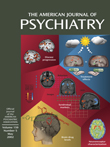The Mind-Body Problem
To the Editor: Dr. Kendler’s admirable article addressed psychiatry’s growing need to revisit the philosophical assumptions underlying current clinical and research practices. His informal presentation of dualism, identity theory, and functionalism was both illuminating and entertaining.
Unfortunately, Dr. Kendler’s metaphysical “primer,” as he himself warned us from the outset, is incomplete. In particular, his discussion excluded an important pair of epistemological approaches to cognition: hermeneutics and quantum computation. These two domains of discourse (1) complement each other’s power to unmask the illusory nature of distinctions between matter and psyche.
When Descartes proclaimed, “Cogito ergo sum,” he conjured up a chimerical barrier between subject and object. This fictitious boundary was predicated on the mistaken notion that an individual mind’s subjective semantic content is coextensive with private, first-person perspectives, while the formal structure of objective facts correlates with a public, third-person viewpoint.
All subsequent forms of dualism as well as derivative eliminativistic monisms have rested on this false distinction between public and private domains. Identity theories have been based on the same flawed foundation in the guise of an explanatory gap between intersubjectively reproducible measurement and subjective qualia. Functionalism, as shown by the Chinese-room argument, demonstrates similar dependencies cast in semantic terms.
Hermeneutics shatters the Cartesian barrier by opening hidden aspects of an individual mind’s subjective content to interpretation by third persons; the prime therapeutic example of such an interpretative process is psychoanalysis, although Marxism and Heideggerian existentialism offer alternative methodologies (2). Quantum computation breaches the Cartesian barrier from its opposite end by generating quantitative knowledge, albeit with limited precision, through the quasi-subjective agency of an operator.
Today neither hermeneutics nor quantum computation occupies center stage in academic circles. Hermeneutics has been driven from institutional power in the psychiatric world by the economics of drug research and its positivistic demands. Quantum computational neuroscience (3, 4), plagued by thermodynamically oriented criticisms, sits stalled outside the mainstream of psychobiology.
However, hermeneutics and quantum computation may yet prove to be seminal components of a decisive future breakthrough beyond the conceptual prison wall erected by Descartes. Both are part of the postmodern legacy that “decenters” the human subject. Acceptance of both, therefore, requires stoical endurance of narcissistic blows to our misplaced faith in an imaginary self-omniscience. It is still possible that organized psychiatry will summon the programmatic strength to sustain such blows in the interest of progress.
1. Mender D: Psychiatry’s quantum future. Newsletter of the Association for the Advancement of Philosophy and Psychiatry 1997; 5(2):7-8Google Scholar
2. Kearney R: Modern Movements in European Philosophy. Manchester, UK, Manchester University Press, 1986Google Scholar
3. Jibu M, Hagan S, Hameroff SR, Pribram KH, Yasue K: Quantum optical coherence in cytoskeletal microtubules: implications for brain function. Biosystems 1994; 32:195-209Crossref, Medline, Google Scholar
4. Stapp HP: Why classical mechanisms cannot naturally accommodate consciousness but quantum mechanics can. Psyche: An Interdisciplinary J Res Consciousness 1995; 2(5) http://psyche.cs.monash.edu.au/v2/psyche-2-05-stapp.htmlGoogle Scholar



